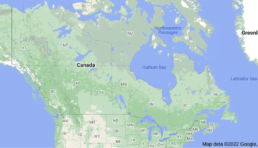Canada

Our correspondent believes that public support for age verification in Canada is “growing”. All the government attention over the past few months was kick-started by the Nicolas Kristof article in the New York Times. It was called the Children of Porn and was published in December, 2020. It shone a light on Montreal-based PornHub’s inclusion of Child Sexual Abuse Material and non-consensual images. This illegal material was included within its purportedly legal pornographic content.
As a result of the Kristof article the Canadian parliament’s Ethics and Privacy Committee began a study. They focused on the “Protection of Privacy and Reputation on Platforms such as Pornhub”. This resulted in a report with some strong recommendations for government.
Our correspondent believes that public support for age verification in Canada is “growing”. All the government attention over the past few months was kick-started by the Nicolas Kristof article in the New York Times. It was called the Children of Porn and was published in December, 2020. It shone a light on Montreal-based PornHub’s inclusion of Child Sexual Abuse Material and non-consensual images. This illegal material was included within its purportedly legal pornographic content.
As a result of the Kristof article the Canadian parliament’s Ethics and Privacy Committee began a study. They focused on the “Protection of Privacy and Reputation on Platforms such as Pornhub”. This resulted in a report with some strong recommendations for government.
Proposed legislation
Building on this, two separate pieces of national legislation have been put forward in Canada. In the immediate term, the passage of both bills has been interrupted by the dissolution of parliament for the Canadian federal election. This occurred on September 20, 2021. The previous government was returned with a lessened majority.
Senator Julie Miville-Dechene submitted Bill S-203 on age verification to the Canadian Senate where it passed a third reading. This did not complete the legislative process before the election. The Senator has indicated she will table the Bill again with the new Parliament.
Stop Internet Exploitation Act
The other piece of proposed legislation was the Stop Internet Exploitation Act, Bill C-302 which was tabled in May, 2021. This is an example of age verification in the supply-side of the pornography industry. The bill says that…
“This enactment amends the Criminal Code to prohibit a person from making pornographic material for commercial purposes without having first ascertained that each person whose image is depicted in the material is 18 years of age or older and has given their express consent to their image being depicted. It also prohibits a person from distributing or advertising pornographic material for commercial purposes without having first ascertained that each person whose image is depicted in the material was 18 years of age or older at the time the material was made and gave their express consent to their image being depicted.”
This Bill will also need to be re-tabled once a new government is formed.
New legislative and regulatory framework
The Canadian federal Government proposes a new legislative and regulatory framework. This would create rules for how social media platforms and other online services must address harmful content. The framework sets out:
- which entities would be subject to the new rules;
- what types of harmful content would be regulated;
- new rules and obligations for regulated entities; and
- two new regulatory bodies and an Advisory Board to administer and oversee the new framework. They would enforce its rules and obligations.
Within the civil realm, the Canadian non-profit organisation Defend Dignity has also initiated a public campaign that approaches companies and organisations. It invites them to choose to change policies and practises which allow for online harms. The campaign engages the public to send emails and tweets to companies and organizations in Canada, which are complicit in allowing exposure to online pornography. Some positive outcomes from this campaign include two restaurant chains which have implemented filtered Wi-Fi – The Keg and Boston Pizza. Hotel chains, internet service providers, credit card companies and library services, due to their lack of protection from online harms especially for children, are all on the Defend Dignity list. Defend Dignity is also currently in conversation with Canadian executives from Instagram. They are concerned about their plans to initiate a platform for children under 13 years of age.


